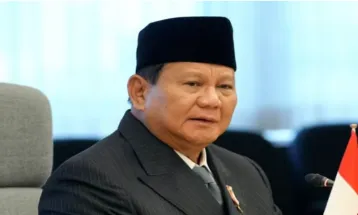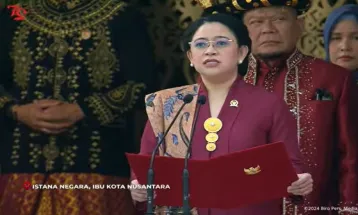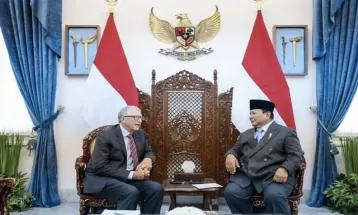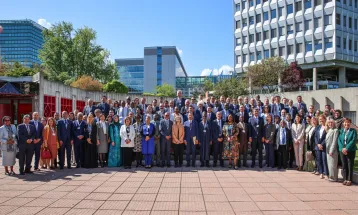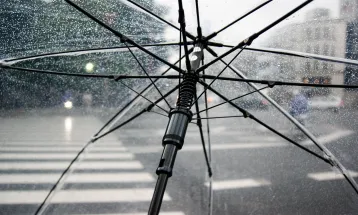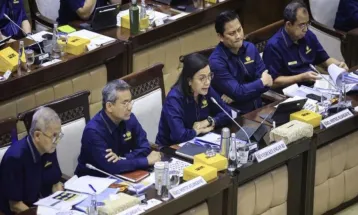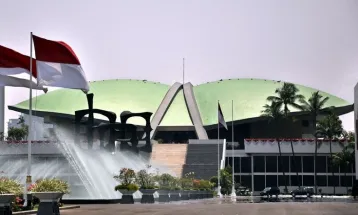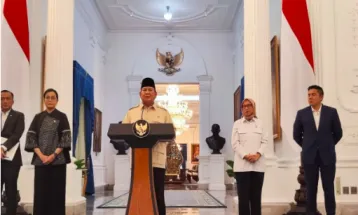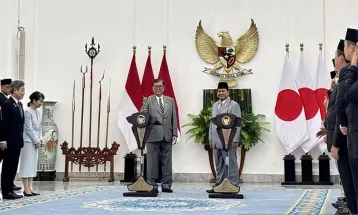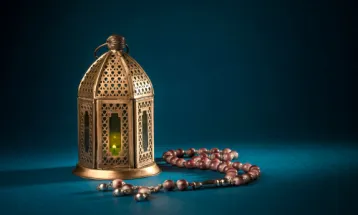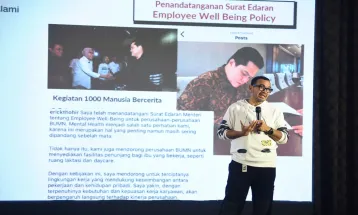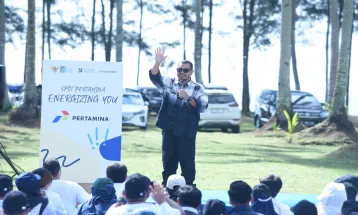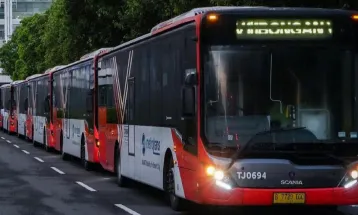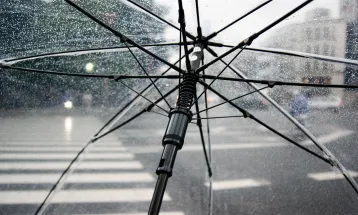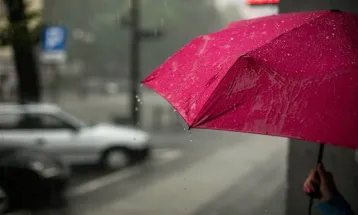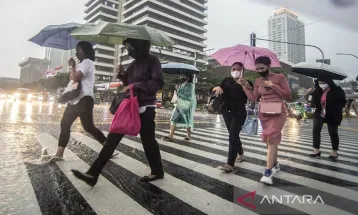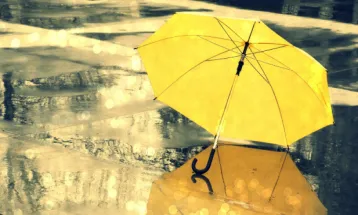Hanging Slaves During VOC Colonialization Era
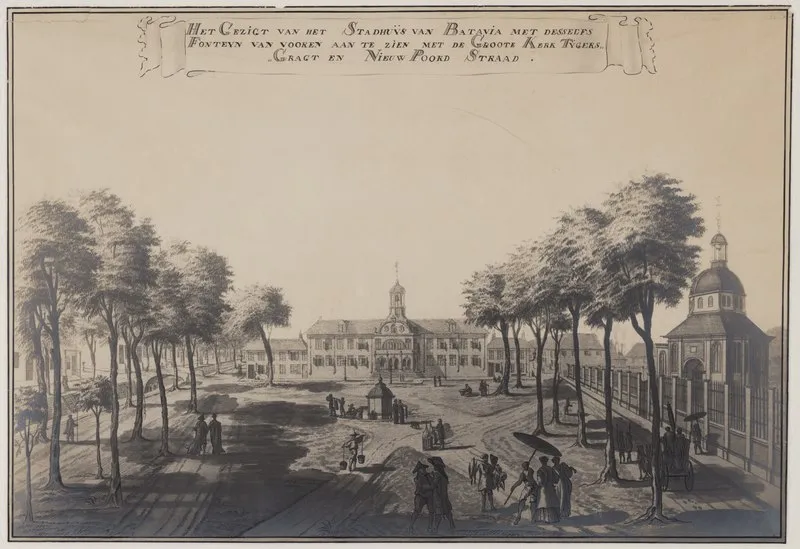
SEAToday.com, Jakarta-Suicide is often seen on the news, caused by the pressure of living. During the colonialization era, slaves also committed this act by hanging themselves. How did that happen?
The Dutch/Europeans had troubles adapting to life in Nusantara. They couldn't take the tropical climate. Some even died at a young age because of it.
The Dutch couldn't handle their home affairs alone as well. They needed help at a cheap price, they needed slaves. Slaves served in the house.
They could help with the house carriages, cooking, and gardening. Female slaves were as useful in bed. They were called "gundik" or concubine.
Slaves in Batavia
Slaves are needed in the house of the Europeans. They had more than one slave. The rich had hundreds of them.
The demand profited the VOC. Other than having a spice monopoly, they became an agent for slaves. They looked for domestic and foreign slaves. Bali was their biggest supplier.
"Bali was an important slave supplier for Batavia. The area consistently provided slaves for VOC forts from the middle of the 17th century until the early 19th century. They provided a total of 100 thousand to 150 thousand slaves," said Historian Bondan Kanumuyoso in the book "Ommelanden: Perkembangan Masyarakat dari Ekonomi di Luar Tembok Kota Batavia" (2023).
They provided slaves to Batavia (now Jakarta) and sold them. Advertisements of slaves and inquiries of them grew throughout Batavia. The trade of slaves were carried out in public, one of them being in front of the Toko Merah in Oud Batavia (now Kota Tua).
That condition made slavery a symbol for social status in Batavia. The ownership of a slave was an added value to the existing ones: House, clothing, carriage, honorary statues, and slave. Those who had many slaves were honored.
"Even a lowlife Dutch woman had a slave to hold an umbrella up for her to protect her from the sun. The umbrella was a parasol with six dragons embroidered on it and ornamental leaves," said Nicolas de Graaff, as written by Historian Jean Gelman Taylor in the book "Kehidupan Sosial di Batavia" (2009).
Slaves were like a complementary accessories in important events, from attending a mass to arranging business affairs. There were a lot of slaves in Batavia.
Hanging Slaves
The slave suppliers didn't pay attention to the slaves' wellbeing. Many slaves received poor treatment.
The phrase "beggars can't be choosers" was applicable at that time. Having a nice owner was a blessing. On the other hand, those who had bad owners couldn't make a single mistake, let alone fight their owners.
Whenever they fought back, they were whipped with the "Vader Driesprong". That was the lightest punishment, but it could break a slave's spirit.
"Vader Driesprong was a three-pronged whip. It was the lightest form of punishment. A slave would be whipped with it when they didn't obey their owners' orders," as written in the Tempo report titled "Lembar-Lembar Perbudakan di Batavia" (1985).
The punishments only got worse from there. The owners could throw their slave into a red ant nest until they die or leave them in a water barrel all night long.
There's also a form of punishment where the slaves were tied and had boiling water dripped on them slowly until they die. It was even worse for female slaves.
Female owners often got jealous of female slaves who flirted with their husband. It drove them to torture the slaves until they pass away.
The slaves who survived started looking for ways to escape. However, they didn't have the courage. Many finally chose to commit suicide.
They hung themselves. They would rather die than be continuously tortured.
"They tortured the poor slaves with such wickedness until the slaves lost hope and chose to commit suicide. Some hung themselves, some did it with iron, and some jumped into the water, where death seemed friendlier," said Jean Baptiste Tavernier as written by Bernard Dorleans in the book "Orang Indonesia & Orang Prancis: Dari Abad XVI sampai dengan Abad XX" (2006).
The rope was often chosen back when slavery was legal in Nusantara. Bad owners only understood one thing, that buying slaves meant buying their lives too, and they were free to torture the slaves to their liking.
Recommended Article
Insight Indonesia
TNI Law Amendments Officially Passed by Parliament
The Bill on Amendments to Law Number 34 of 2004 on the Indonesian National Armed Forces (TNI) has been approved
President Prabowo Leads Meeting on Downstream Industry Accelerati...
President Prabowo Subianto held a limited meeting with several cabinet ministers at his residence in Hambalang, Bogor
Japan's Prime Minister Supports Indonesia to Become a Member of O...
Japan's Prime Minister, Shigeru Ishiba, expressed his support for Indonesia's efforts to become a full member of the Organization for Economic Cooperation and Development (OECD), which currently consists of 38 countries...
Muhammadiyah: Ramadan 2025 Begins March 1, Eid Falls on March 30
Muhammadiyah Central Leadership (PP), Tuesday (7/1), officially set the beginning of Ramadan 1446 Hijri on March 1, 2025. Meanwhile, Eid al-Fitr or Lebaran will fall on March 30, 2025.
Popular Post
SOEs Ministry Tries Out Four Days in Workweek System
The State-Owned Enterprises (SOEs) Ministry is testing the implementation of a four-day workweek. This was shared on Instagram @lifeatkbumn on Saturday (6/8).
TransJakarta Extends Operational Hours of Soekarno-Hatta Airport...
TransJakarta extended its service time until midnight for the corridor with destination to the Soekarno-Hatta International Airport, starting Wednesday (6/19).
Trending Topic
Weather Forecast
Weather Forecast Today: Some Cities Are Expecting Light Rain
Several major cities have the potential to experience light rain on Tuesday (8/4/2025) today. Check out the following explanation.
Potential Extreme Weather to Hit Western Indonesia
The Meteorology, Climatology, and Geophysics Agency (BMKG) has identified the potential for extreme weather in western Indonesia
The Meteorology, Climatology, and Geophysics Agency (BMKG) Predic...
The Meteorology, Climatology, and Geophysics Agency (BMKG) predicts that high-intensity rainfall will continue until March 11. Although a slight decrease in intensity is expected in the coming days due to weather modific...
Weather Forecast: Light Rain Across Jakarta on Thursday Afternoon
The Meteorology, Climatology, and Geophysics Agency (BMKG) forecasts that all areas of Jakarta will experience light rain on Thursday (2/13) afternoon.




